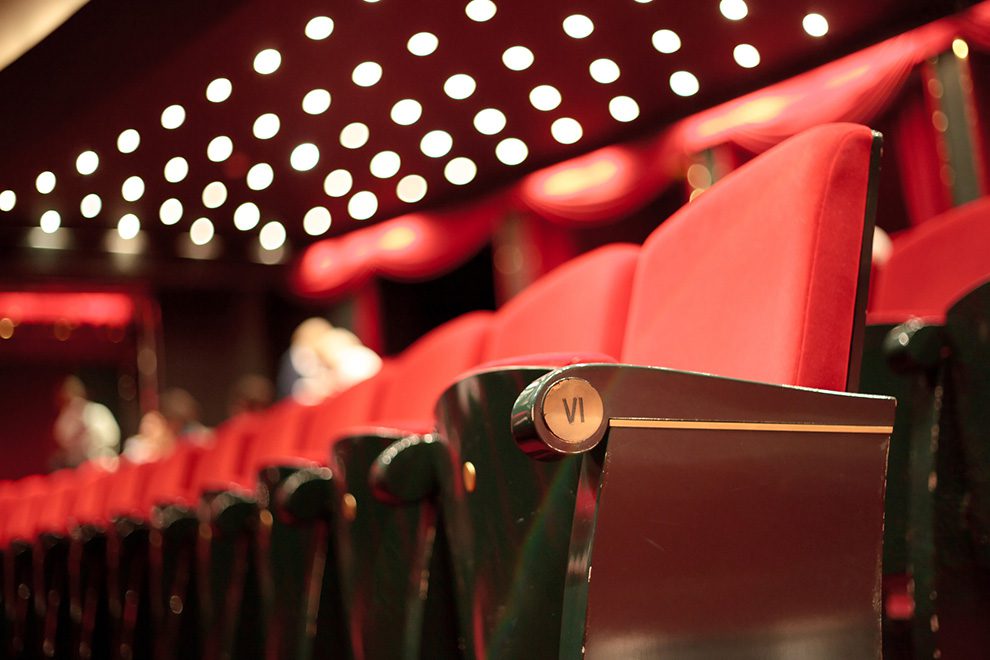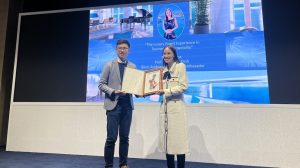The Macao Government’s efforts to position the city as a World Centre of Tourism and Leisure have yet to yield major results, especially in the field of arts, says a study involving 2 scholars from IFT.
The ongoing rebranding exercise is no easy task given the overwhelming economic importance of casino gaming in Macao, the researchers admitted. They suggested a long-term approach – including strategic planning, proper infrastructure and coordinated product development – as the best way of building an appealing and distinctive cultural brand image for Macao.
The study was conducted by IFT scholars Ms. Joey Sou Pek U and Dr. Thea Vinnicombe, in collaboration with Dr. Tiffany Leung Cheng Han from the Hong Kong Polytechnic University. The results were featured in their academic paper “Rebranding Macau: views of cultural industry insiders”, published last year in the International Journal of Culture, Tourism and Hospitality Research.
The results were based on in-depth interviews with 14 professionals in Macao’s performing arts sector. The sample included planners, performers, administrators and educators.
“While culture was generally perceived as a viable means to promote the city in a positive way, respondents were, however, sceptical about the possibility of changing Macao’s brand image through cultural offerings,” the researchers concluded. “They viewed Macao’s gaming image as too strong and too singular to encompass culture generally, and especially the performing arts,” they added.
The researchers concluded that the study findings suggested the local authorities were “unwilling to acknowledge the reality of Macao’s attractions and, rather than embracing and building on the city’s strengths as a gaming destination, cling to an unrealistic vision of a ‘World Centre of Tourism and Leisure’ based on a cultural sector which is no more unique than that of myriad alternative destinations.” The scholars added that the rebranding campaign appeared to be more related to political motivations than driven by real world forces.
Vague strategies
Study respondents were “broadly aware of the Government’s decision to leverage culture” and position Macao as a World Centre of Tourism and Leisure, the researchers wrote. “However, it became clear [from the interviews] that the term ‘World Centre of Tourism and Leisure’ is vague and was not clearly understood by the stakeholders, nor was it properly communicated through the cultural policies,” they added.
The study findings showed that respondents were “virtually unanimous” in seeing Macao’s destination brand as “overwhelmingly associated with casinos and gaming”. The majority of the opinions collected considered that to be an unfavourable association, given the negative views on gambling in some societies, the paper stated.
When asked about the contribution of culture to Macao’s brand image, a majority of respondents noted aspects such as the city’s architecture, cuisine, language diversity and religious heritage. Many interviewees expressed concern that Macao’s pre-existing cultural heritage was being destroyed by the rapid development of gaming tourism.
Interviewees had varied opinions on the potential contribution of performing arts to the development of Macao as a World Centre of Tourism and Leisure – this was one of the focuses of the study.
“Some respondents felt that the sector was a rich and readily available tool for enhancing and broadening Macao’s image,” the researchers said. “Some also made the point that given the city’s lack of natural resources, the performing arts could be a viable means to enrich the existing tourism offerings.”
The findings showed that many interviewees thought performing arts could attract a high-value type of tourist to Macao, “who would stay longer, spend more and contribute less to congestion” than the current visitors. But respondents also acknowledged that despite its potential, Macao’s cultural sector was still “too vulnerable”, “mainly supply-driven” and dependent on Government subsidies.
Know your customer
Study respondents described current visitors as not particularly interested in performing arts. The scholars said the study findings pointed to the need for further research to identify an “appropriate brand strategy” targeting current tourists, or which could attract a broader range of visitors.
“It is hard to justify promoting a non-gaming brand image without much in the way of solid contributions” from this sector to tourism, the researchers wrote. “The discrepancy between the perceived benefit and the actual contribution of cultural offerings in Macao highlights the need for attention from the destination marketers and policymakers,” they added.
The study however identified “serious resource deficiencies” negatively affecting the development of arts in Macao. Those included lack of practice venues and performance venues, and the scarcity of well-trained arts administrators.
“A number of interviewees also stressed that current performances are not attractive to tourists as they fail to showcase Macao’s unique culture and instead focus on similar shows to those offered in neighbouring cities,” the paper stated. “In addition, those local performances which better demonstrate the city’s unique culture are currently just not accessible to visitors, being located in venues scattered around the city, and often difficult to reach.”
Other shortcomings identified in the study included insufficient promotion of local performances to tourists, and language barriers regarding promotional efforts and the shows themselves. This limited the audience appeal of such performances, the researchers said.
More info
IFT Assistant Professor Dr. Thea Vinnicombe has been teaching economics at higher education institutions in Australia and further afield for several years. She came to IFT from the University of Applied Sciences in Fulda, Germany. Dr. Vinnicombe has a doctorate in economics from the University of Queensland, in Australia. Her research interests include the history of economic thought, Islamic economics and finance, and resource economics.
Dr. Tiffany Leung Cheng Han is a Lecturer at the Hong Kong Polytechnic University. She gained her doctorate and her master’s degree from the University of St. Andrews, in Scotland, in the United Kingdom. Before joining Hong Kong Polytechnic University, she was a Lecturer at Macao’s University of Saint Joseph.









